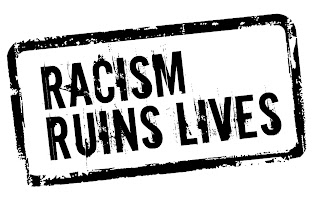Borderline: Borderline Personality Disorder (BPD) is a serious and often life-threatening disorder that is characterized by severe emotional pain and difficulties managing emotions. The problems associated with BPD include impulsivity (including suicidality and self-harm), severe negative emotion such as anger and/or shame, chaotic relationships, an extreme fear of abandonment, and accompanying difficulties maintaining a stable and accepting sense of self. Thus, BPD is characterized by pervasive instability of mood, interpersonal relationships, self-image, and actions, often negatively affecting loved ones, family and work life, long-term planning, and the individual's sense of self-identity.

Schizotypal: Schizotypal Personality Disorder is a condition characterized by acute discomfort with, and reduced capacity for, close relationships as well as by cognitive or perceptual distortions and eccentricities of behavior. This disorder is only diagnosed when these behaviors become persistent and very disabling or distressing. This disorder should not be diagnosed if the distrust and suspiciousness occurs exclusively during the course of Schizophrenia, a Mood Disorder With Psychotic Features, or another Psychotic Disorder or if it is due to the direct physiological effects of a neurological (e.g., temporal lobe epilepsy) or other general medical condition.

Paranoid: Paranoid Personality Disorder is a condition characterized by excessive distrust and suspiciousness of others. This disorder is only diagnosed when these behaviors become persistent and very disabling or distressing. This disorder should not be diagnosed if the distrust and suspiciousness occurs exclusively during the course of Schizophrenia, a Mood Disorder With Psychotic Features, or another Psychotic Disorder or if it is due to the direct physiological effects of a neurological (e.g., temporal lobe epilepsy) or other general medical condition.

Narcissistic: Narcissistic personality disorder is a condition characterized by an inflated sense of self-importance, need for admiration, extreme self-involvement, and lack of empathy for others. Individuals with this disorder are usually arrogantly self-assured and confident. They expect to be noticed as superior. Many highly successful individuals might be considered narcissistic. However, this disorder is only diagnosed when these behaviors become persistent and very disabling or distressing.
Histrionic: Histrionic Personality Disorder is a condition characterized by excessive emotionality and attention-seeking. This disorder is only diagnosed when these behaviors become persistent and very disabling or distressing.
Antisocial: Antisocial Personality Disorder is a condition characterized by persistent disregard for, and violation of, the rights of others that begins in childhood or early adolescence and continues into adulthood. Deceit and manipulation are central features of this disorder. For this diagnosis to be given, the individual must be at least 18, and must have had some symptoms of Conduct Disorder (i.e., delinquency) before age 15. This disorder is only diagnosed when these behaviors become persistent and very disabling or distressing.

Obsessive-compulsive: Obsessive-Compulsive Disorder, OCD, is an anxiety disorder and is characterized by recurrent, unwanted thoughts (obsessions) and/or repetitive behaviors (compulsions). Repetitive behaviors such as handwashing, counting, checking, or cleaning are often performed with the hope of preventing obsessive thoughts or making them go away. Performing these so-called "rituals," however, provides only temporary relief, and not performing them markedly increases anxiety.
Avoidant: Anxious (Avoidant) Personality Disorder is a condition characterized by extreme shyness, feelings of inadequacy, and sensitivity to rejection. These individuals feel inferior to others. This disorder is only diagnosed when these behaviors become persistent and very disabling or distressing. This diagnosis should be used with great caution in children and adolescents for whom shy and avoidant behavior may be appropriate.











